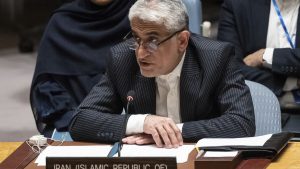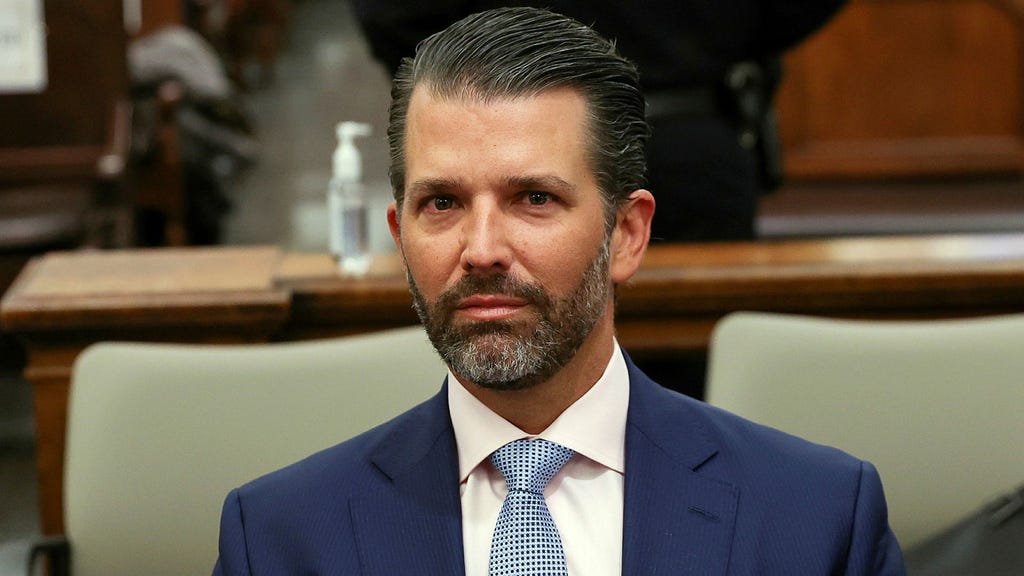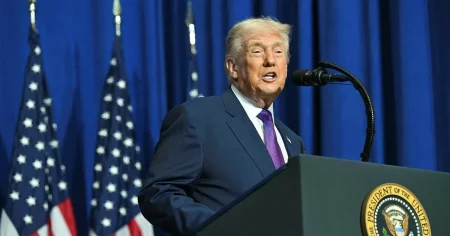Donald Trump Jr.’s impending arrival in Greenland has sparked controversy and speculation, raising questions about the true nature of his visit and its potential implications for the island’s relationship with Denmark and the United States. While Greenland’s Department of Foreign Affairs insists the visit is private, with no official meetings scheduled with the Greenlandic government, conflicting reports suggest otherwise. The visit comes amidst a backdrop of renewed interest by the Trump family in Greenland, following former President Donald Trump’s controversial attempts to purchase the island during his presidency. This renewed interest raises concerns about potential future bids for Greenland and the geopolitical ramifications of such a move.
The conflicting narratives surrounding the visit contribute to the intrigue and uncertainty. While Greenlandic officials maintain that no government meetings are planned, an anonymous source claims that Trump Jr. is scheduled to meet with Erik Jensen, leader of the ruling Siumut party. Jensen himself has declined to comment, further fueling speculation. This lack of clarity raises questions about the transparency of the visit and whether the true purpose is being obscured. The insistence that the visit is private contrasts sharply with the potential meeting with a key political figure, suggesting a level of political engagement beyond a mere personal trip.
Adding to the complexity, former President Trump recently reiterated his interest in Greenland on his social media platform, Truth Social, declaring control over the island an ”absolute necessity.” This statement, coupled with Erik Jensen’s earlier invitation to Trump to visit Greenland, adds weight to the theory that Trump Jr.’s visit is more than just a casual excursion. These preceding events create a context within which the visit can be interpreted as a continuation of the Trump family’s interest in acquiring Greenland, potentially laying the groundwork for future negotiations or renewed attempts at purchase.
The Danish government’s response to the visit adds another layer to the unfolding narrative. While acknowledging Trump Jr.’s arrival, the Danish Foreign Ministry emphasizes the unofficial nature of the visit, refraining from further comment. This measured response reflects Denmark’s delicate position. As Greenland is a self-governing territory of Denmark, the Danish government is responsible for its foreign and security policy. Trump Jr.’s visit, therefore, presents a potential challenge to Danish sovereignty, especially given the historical context of Trump’s previous attempts to acquire the island.
Bent Winther, a political commentator for the Danish newspaper Berlingske, goes further, characterizing the visit as a ”total humiliation” for the Danish government. He argues that, regardless of its ostensibly private nature, the visit represents a deliberate provocation, given the implications for Greenland’s foreign policy, which falls under Danish jurisdiction. This strong reaction underscores the sensitivity surrounding the visit and the perceived threat to Danish authority over Greenlandic affairs. Winther’s interpretation highlights the potential for the visit to strain relations between Denmark and the United States, particularly if it is seen as a precursor to renewed efforts to acquire Greenland.
The visit of Donald Trump Jr. to Greenland is therefore a complex and multifaceted event, shrouded in ambiguity and raising significant questions. While officially deemed a private visit, the surrounding circumstances, including previous statements by both Trump and Jensen, suggest a deeper political agenda. The conflicting reports about potential meetings with Greenlandic political figures, the Danish government’s cautious response, and the strong reactions from political commentators all contribute to the sense that this visit is more than it appears. The potential implications for Greenland’s future, its relationship with Denmark, and the geopolitical landscape of the Arctic region remain to be seen, but the visit undoubtedly signals a renewed focus on this strategically important island and its uncertain future. The visit could be the prelude to renewed discussion about Greenland’s status, its relationship with Denmark, and its potential future within the sphere of American influence.














